#military training India
Explore tagged Tumblr posts
Text
BEST DEFENCE ACADEMY IN INDIA | ADMISSION OPEN 2025-26 #admissionsopen #youtubeshorts #viralshort #trendingshort #bestdefenceacademy
The Best Defence Academy in India, Manasa Defence Academy, is your ultimate destination for success in defence careers. With top-notch training for NDA, Navy, Army, Air Force, Coast Guard, SSC, and all central government jobs, we ensure that every student is fully prepared for the toughest challenges. Our academy offers physical training by retired Army officers, swimming, gym, yoga, written exam preparation, SSB interviews, English speaking skills, stage speech training, and excellent hostel and mess facilities. 📌 Join now and make your defence dream a reality! Call or visit our website for more details.
Call:7799799221
Website:www.manasadefenceacademy.com
#BestDefenceAcademy #ManasaDefenceAcademy #NDAtraining #ArmyTraining #SSBInterview #IndianNavy #DefenceJobs #AirForceTraining #JoinIndianArmy #defencecareer #trending #viralshort #trendingshort#bestdefenceacademyinandhrapradesh #bestdefenceacademyinindia #bestdefenceacademyinap
#best defence academy in india#manasa defence academy#nda training india#best army training in india#navy coaching academy#air force training#ssb interview preparation#nda 2025 admissions#army physical training#defence coaching center#indian armed forces preparation#best nda coaching#coast guard training#top defence academy#military training india#defence career opportunities#indian army training#nda coaching with hostel
0 notes
Text
youtube
#youtube#defense cooperation#Exercise Tiger Triumph#naval drill#international collaboration#military readiness#amphibious operations#defense alliance#amphibious landing#amphibious warfare#Indo-U.S. relations#Indian Navy#joint forces#military strategy#military training#joint exercises#Tiger Triumph 2025#defense collaboration#international cooperation#defense partnership#naval exercise#U.S.-India relations#war games
0 notes
Text
India buys HAL-made gunships for $7.3 billion, boost military against China, Pakistan
By N. C. Bipindra New Delhi: India‘s Ministry of Defence (MoD) on Mar. 28, 2025, signed two contracts with state-run Hindustan Aeronautics Limited (HAL) for the supply of 156 Light Combat Helicopters (LCH), also called Prachand, along with training and other associated equipment worth INR 62,700 crore (US$7.3 billion), excluding taxes. The two contracts split the Prachand orders between the…
#Aerospace#China#Contract#Deal#Defence#Defence Ministry#Defense#Flight Refuelling Aircraft#Gunship#HAL#Helicopter#High Altitude#Hindustan Aeronautics#India#Indian#Indian Air Force#Indian Army#Indian Navy#Light Combat Helicopters#Metrea Management#Military#Military Aviation#Ministry of Defence#Pakistan#Pilots#Prachand#Training#Warfare#Wet Lease
0 notes
Text
Physical Fitness and Military Training: The Core of Maharashtra’s Defense Academies

Physical fitness and military training play roles, in shaping the defenders of our nation. In Maharashtra defence academies are more than institutions; they are crucibles where young individuals undergo experiences that mould them into strong disciplined and resilient individuals ready to serve their country with unwavering dedication. Among these academies Trimurti Pawan Pratishthan stands out by emphasising the role of fitness in the overall development of its cadets.
The Significance of Physical Fitness:
Physical fitness serves as the foundation for any training program. It goes beyond appearance and encompasses strength, endurance, agility and mental toughness. The defense academies in Maharashtra understand that a fit and healthy body is not just desirable but necessary for soldiers who may face challenging and demanding environments. Physical fitness enhances the effectiveness and operational capability of our forces.
Military Training; Going Beyond Physicality:
Military training extends beyond exercises; it takes a holistic approach to instill discipline, leadership skills, teamwork abilities and a strong sense of duty. The defense academies, in Maharashtra acknowledge the importance of nurturing rounded individuals who possess not physical capabilities but also mental resilience and moral integrity.
Cadets undergo training programs that equip them with the skills to overcome challenges, foster strategic reasoning and demonstrate unwavering dedication to the principles of honor, courage and duty.
Maharashtra’s Defense Academies: A Breeding Ground for Future Leaders:
Trimurti Pawan Pratishthan, one of Maharashtra’s prominent defence academies, stands as a testament to the state’s commitment to producing exceptional leaders for the armed forces. The academy places a strong emphasis on physical fitness, viewing it as the bedrock upon which the character and capabilities of its cadets are built.
The academy’s approach to military training integrates physical fitness seamlessly into its curriculum. Cadets are exposed to a variety of physical challenges, ranging from obstacle courses to endurance training, ensuring they develop the stamina and resilience required for the demands of military service. This comprehensive training regimen at Trimurti Pawan Pratishthan ensures that cadets not only meet the physical standards but exceed them, setting a benchmark for excellence.
Read more…
0 notes
Text
#schoolsofdehradun#Rashtriya Military School#Military School Bangalore#Best Boarding School Bangalore#Schools in Bangalore#Schools of Dehardun#Military Education India#Holistic Education#Leadership Training#Academic Excellence#Military Training School#Discipline in Schools
0 notes
Text
Explore how military schools focus on developing leadership skills in their cadets.

In the realm of education that goes beyond boundaries institutions, like Trimurti Pawan Pratishthan truly stand out due to their dedication to nurturing well rounded individuals. At the heart of their philosophy lies an approach to developing leaders through military education. In this blog post we will delve into how Trimurti Pawan Pratishthan focuses on fostering leadership abilities in its cadets.
Training Programs for Leadership:
Military schools comprehend that leadership is not a trait but a skill that can be nurtured. At Trimurti Pawan Pratishthan cadets partake in programs specifically designed for leadership development, which include team building exercises, workshops and hands on experiences aimed at simulating real life situations where leadership skills are vital.
Discipline as the Foundation:
Discipline serves as the cornerstone of any education and Trimurti Pawan Pratishthan places importance on instilling discipline in its cadets. From maintaining uniforms to adhering to a schedule every aspect of their daily routine contributes to cultivating disciplined leaders.
Practical Leadership Exercises:
Recognizing that theoretical knowledge alone is inadequate Trimurti Pawan Pratishtan offers cadets opportunities to apply their leadership skills in practical scenarios. Field exercises, command assignments and leadership roles, within the school community empower cadets to make decisions effectively manage resources and lead their peers with confidence.
One unique benefit of attending a school is the mentorship offered by experienced military personnel. At Trimurti Pawan Pratishthan cadets are fortunate to receive guidance from mentors who possess a wealth of knowledge and experience. These mentors provide insights and life lessons that greatly contribute to the cadets development, as leaders.
Ethical Leadership Emphasis:
In addition to leadership skills, Trimurti Pawan Pratishthan places a strong emphasis on ethical leadership. Cadets are not only taught how to lead effectively but are also instilled with a sense of ethics and moral values. Integrity, accountability, and respect form the foundation of the leadership principles imparted at the school.
Leadership in Academics and Extracurricular Activities:
Trimurti Pawan Pratishthan goes beyond the parade ground, encouraging cadets to take leadership roles in academics, sports, and cultural activities. Whether leading a project team or captaining a sports team, cadets learn to apply leadership skills in diverse situations, preparing them for the challenges that lie ahead.
Conclusion:
In the hallowed halls of Trimurti Pawan Pratishthan, the seeds of leadership are sown, destined to grow into mighty trees that will shape the future of our society. Through a holistic approach that integrates military principles, discipline, mentorship, and a focus on ethical leadership, the school ensures that its cadets emerge as confident, responsible, and effective leaders. Trimurti Pawan Pratishthan stands as a beacon of excellence, dedicated to nurturing leaders who will make a lasting impact on the world.
https://trimurtieducation.com/
#best military school in india#military academy in maharashtra#military boarding school in maharashtra#military training school in maharashtra#boarding school in maharashtra#Cbse Boarding school in maharashtra
0 notes
Text

"THESE ARE THE TROOPS, who'll shoulder a big share of the fighting when the time comes to push the Jap out of occupied areas in the Far East. With oriental war cries on their lips, infantrymen of the Chinese Expeditionary Force hurdle a wall in the obstacle course at American training centre in India. They carry bolt-action rifles. (U.S. Army Air Force photo from NEA)"
Kingston Whig-Standard. June 9, 1943. Page 5.
#chinese expeditionary force#中國遠征軍#x force#world war ii#burma campaign#chinese soldiers#military training#british india
1 note
·
View note
Text
Fantasy Guide to the Army
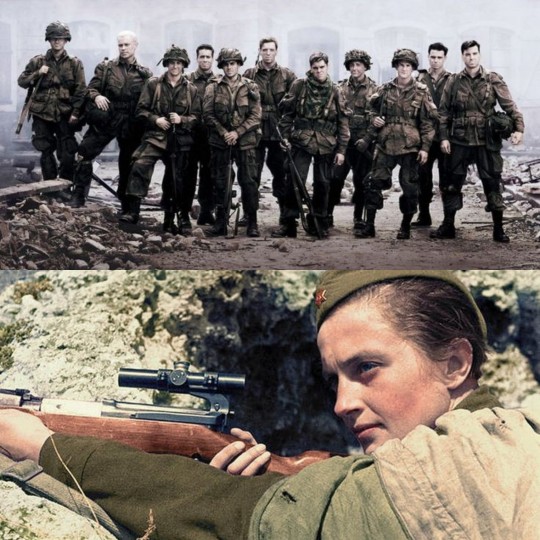
I have been asked to do this post for quite a long while and I finally got around to it. This guide is a basic guide, you may need to do further research into specific armies across the world. Armies are a necessary part to any world building, so what do we need to know about them?
(PS I had planned to include air force and navy but I am just one person and I cut myself, and the read more link, some slack)
Ranks
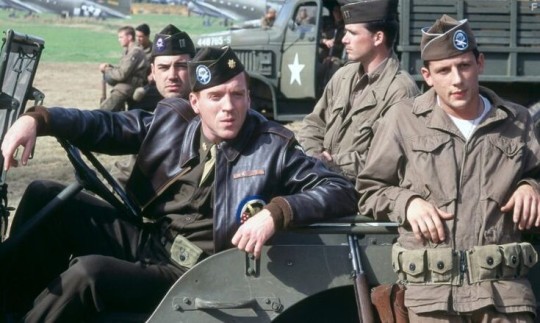
Field Marshal (FM) The Field Marshal is the highest rank of within the Army. The rank of Field Marshal was often granted in times of war (a general must have committed an act of valour, i.e. a victory). The rank can sometimes be used as a divisional command rank or brigade command. The UK, Austria-Hungary, Afghanistan, Germany, India, and Pakistan use the rank as a reward for achievement. Spain and Mexico use it for divisional command while countries such as Portugal, France and Brazil for use it for brigade command. The rank of Field Marshal is a "five star" position. The rank does not exist in the US army. They are addressed as Field Marshal Surname. Their insignia is two crossed batons surrounded by yellow leaves set under a crown.
General (Gen.) A General is the commanding officer of an army or army corps. It is currently the highest rank granted in most armies today, it is a 4 star position. A General is in charge of commanding large units, they are in charge of making strategic decisions for the army, oversee major military operations, manage the needs of the army. They are addressed as General Surname. Their insignia is four stars (US, France, Germany, Russia) and a sword and baton crossed under a crown and a star (UK). Lieutenant General (Lt.Gen) Lieutenant General commands an army corps or a division (tens of thousands of soldiers). They are also involved in strategic planning. They also hold positions within the Ministry of Defence/Equivalents. They would often serve as advisers to the government and aid Generals. It is a 3 star position and they addressed as Lieutenant General Surname. Their insignia is three stars (US, Germany, France, Russia) and a crossed sword and baton under a crown (UK)
Major General (Maj.Gen) Major General is a general officer in the army, responsible for leading and operational roles. They would command divisions of tens of thousands of soldiers. They support the officers above them, helping with strategy, executing the strategy, oversee the training of their units. They are addressed as Major General Surname. They are a 2 star position. Their insignia is a crossed sword and baton with a star (UK) and two stars (US, Germany, Russia, France). Brigadier General (Brig.Gen) Brigadier General is a one-star general officer in the army. They command brigades (3,000 to 5,000 soldiers), assisting Major Generals in tactical planning and coordination of operations. They are addressed as Brigadier General Surname. Their insignia is one star (Russia, Germany, US,), two silver stars (France) and s crown and three stars (for the UK, stars are known as pips). Colonel (Col) Colonels command brigades of about (3,000 to 5,000 soldiers), they are senior staff officers who both provide leadership to their units which are sometimes specialised agencies, such as task forces. Colonels are addressed as Colonel Surname. A silver eagle (US), a pair of diamond pips under a crown (UK), three silver pips upon shoulder braid with silver braid (Germany), three gold pips on a shoulder board with golden braid (France and Russia). Major (Maj) Majors command units of around 120 officers. They are in charge of the training and welfare of their soldiers, administrative duties within the barracks and within their unit. They are the primary staff officer in brigades. They assist superior officers in planning and executing missions and tactical plans. The Major is referred to as Major Surname. Their insignia is 2 gold stars on a shoulder board with golden braid (Russia, France) 2 silver pips on a shoulder board with silver braid (Germany), a crown (UK), a golden oak leaf (US)
Captain (Cpt) Captains lead companies usually around 50-200 soldiers. They are often the second officer in a company working alongside a superior officer. They are responsible for operations in the field such as ensuring equipment is kept up to date and in good condition, offering logistic support, and managing their troops. Captains are addressed as Captain Surname. Their insignia is two silver bars (US), three pips (UK), three silver pips on a shoulder board with silver braid (Germany), three golden pips on a shoulder board with gold braid (France, Russia) Lieutenant (Lt) Lieutenants command a platoon (about 30 odd soldiers). They are in charge of overseeing the training and discipline of their soldiers along with ensuring their welfare. They will participate in missions under the command of a superior. Lieutenants are addressed as Lieutenant Surname. Their insignia is two golden stars on a shoulder board with gold braid (Russia, France), two silver pips on a shoulder board with silver braid (Germany), two pips (UK), one silver bar (US) Second Lieutenant (2/Lt) The Second Lieutenant leads smaller units, working with enlisted soldiers. They are crucial in the training of soldiers, they maintaining personnel records and manage the resources needed for a mission or the units welfare. They would be addressed in conversation as Lieutenant but referred to as Second Lieutenant in dispatches and in correspondence. Their insignia is one gold bar (US), one pip (UK), one silver pip on a shoulder board with silver braid (Germany), one gold pip on a shoulder board with gold braid (Russia, France)
Enlisted Men
Warrant Officer 1st Class (1/WO)This is the most senior non-commissioned rank. They focus on discipline, prisoners, ammunition supplies and various technical and non-combatant services. In the UK, they often hold the rank of Regimental Sergeant Majors (RSMs) and are appointed by the Secretary of State Defence while in the US, the Secretary of the Army appoints them. They are addressed as Mr/Ms/Mrs Surname or Chief. Their insignia is one silver bar and a black square (US), the royal coat of arms (UK), four silver pips on a shoulder board with silver braid (Germany), three gold chevrons and a gold star (France), two gold stars on a shoulder board with golden braid (Russia) Warrant Officer 2nd Class (2/WO) The Warrant Officer Second Class would do similar jobs as the WO1, but they handle the below regimental section. Warrant Officer Class 1 (WO1). WO2s can be referred to as Company Sergeant Majors (CSMs) or Squadron Sergeant Majors (SSMs) (depending on their unit). They take roles within training, discipline and aiding the Warrant Officer Class 1 (WO1). Addressed as CSMs/SSMs and as Mr./Mrs/Ms. Their insignia is one gold star on a shoulder board with gold braid (Russia), Three golden chevrons (France), three silver pips on a shoulder board with silver braid (Germany), crown (UK), silver bar with two squares (US). Sergeant (Sgt)The Sergeant are responsible for the soldiers under their command. They oversee their team, acting as mentors and supervisors to their soldiers. Sergeants are over a squad of 10 soldiers. They are responsible them, from performance, prepare them for combat and their needs. They are addressed as Sergeant Surname. Their insignia is three chevrons (US, UK), two silver pips on a shoulder board with silver pips (Germany), two golden chevrons (France) and three golden chevrons (Russia). Corporal (Cpl)Corporals lead small squads of soldiers, no more than . Corporals are in charge of the training of their soldiers and ensuring that they are up to standard. They handle all the paperwork for their squad such as records. Corporals will accompany their soldiers on missions, leading patrols and overseeing their soldiers in the field. They are usually responsible for large pieces of equipment. They are addressed as Corporal Surname. Their insignia two chevrons (US, UK), one silver pips with shoulder board with a silver braid (Germany), two gold chevron (France, Russia). Lance Corporal (L.Cpl)Lance Corporals help Corporals lead their teams, acting as their second in command. They are in charge of disciplining, mentoring and leading their squads. They are also in charge of large weapons. They are addressed as Lance Corporal Surname. Their insignia one golden chevron (Russia, France), none/one silver pip (Germany), one chevron (UK) and one chevron with crossed rifles (US) Private (Pte)Privates are the lowest rank in the army. They will have just come out of training with the basic skills of a soldier. Privates are given tasks by superior officers, must obey the orders given and are usually given the more hands-on tasks, such as maintenance of weapons and their camp. They are addressed as Private Surname. Their insignia is one chevron/none (US), no insignia (UK, France, Russia, Germany).
Non-Commissioned Officers vs Commissioned Officers
You may have often heard the term "non-commissioned officer" if you have ever watched any war media. The difference is that Commissioned Officers receive their rank via a formal document signed by a high-ranking official, such as the monarch or a political leader. The Commissioned Officers are usually Lieutenants, Colonels, Generals, Captains, Majors. They are responsible for giving orders and making decisions. Non-Commissioned Officers are promoted from the enlisted ranks, gaining their promotion on skills alone. They are in charge of discipline, training and carrying out orders. They are usually ranked among Corporals and Sergeants.
Jobs within the Army

No army is just made up of officers and their soldiers. An army is like a town on the move, there are hundreds of different tasks that must be undertaken to ensure the army is fed, transported, kept in line and kept equipped.
Medic: Medics are the first responders for wounded soldiers, they administer first aid, medication and medical care to the soldiers in their unit. Medics are usually NCOs.
Chaplain: Is a soldier with some religious or spiritual calling that administers last rites, confession, spiritual guidance and solace for soldiers. They will see to soldiers of all creeds and faiths.
Artillery Crew: The Artillery Crew handle the maintenance and inventory of artillery weapons and related equipment. NCOs with training in the handling of artillery.
Military Police: The Military Police are force within the army that keep soldiers in line, maintain order and arrest any soldier caught doing a crime on the job. Always NCOs.
Intelligence: This is the information post, which involves fact gathering, recording and study of information needed by the army to mobilise.
Quartermaster: The quartermaster manages the distribution and gathering of all the things needed for the army from uniforms to equipment for the soldier's packs. Usually NCOs.
Mess Officer: The Mess Officer oversees the Mess Hall, managing the staff as they cook and prepare the army's meals. The Mess Officer would also be in charge of budgeting, inventory, health and safety and providing meals timely. Usually an officer, Captains and Lieutenants.
Adjutant: Is an officer who acts as an assistance to a superior officer taking on secretarial duties such as paperwork and arranging their diary. Usually a Captain or a Major.
Combat Engineer: The Combat Engineer is in charge of maintaining and building fortifications. NCOs with specialised skills in the field.
Logistics: Logistic Specialists handle the supplies, equipment and arranging transportation. NCOs.
Armourer: The armourer is in charge of weapons and ammunition. They handle any repairs needed and see to the safe storing of these valuable items. NCOs.
Communications Specialist: These Specialists handle communications, the communication equipment and its maintenance. NCOs usually with previous experience or training.
Mechanics: Mechanics are in charge of the maintenance of vehicles and machinery. They handle repairs, do check ups, offer support in the field and ensure everything is in good shape. NCOs with training and skills in the area.
Equipment
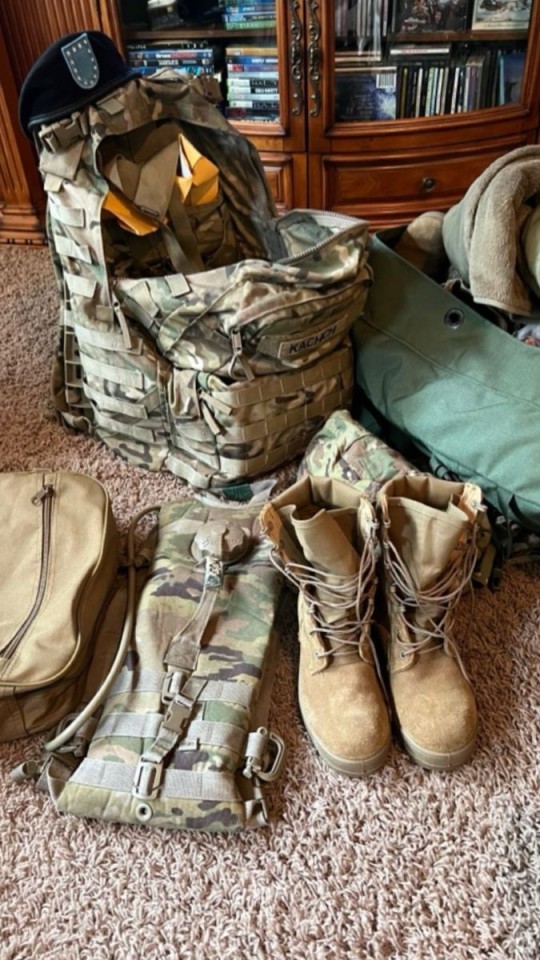
The soldiers will not be going into any situation without equipment - at least, not at first. Equipment is like gold dust in the field, especially if a unit is within enemy territory or the supply chain cannot be relied upon. Soldiers may often turn to thievery in order to resupply themselves with ammunition, weapons, supplies and even boots. In WWII, the newly formed company the Special Air Service - the SAS - actually raided their allies for supplies.
The soldier would carry essential supplies when they are first deployed. These would include (may vary):
Flasks/Canteen: Or some sort of drinking container. A soldier will need to hydrate if they don't wish to die-dydrate on a long march. They may also carry water purification chemicals such as iodine.
First Aid Kits: All soldiers will carry the basics of a first aid kit. This would include bandages, gauze, burn ointment, tourniquet, pain relief (not the good stuff), scissors and tweezers.
Knife: It is always handy to have something to cut things with.
Gun Cleaning Tools: Soldiers will have the equipment to care for their weapons. An uncared for weapon is an invitation for death.
Ammunition: A soldier would carry ammunition with them.
Entrenching Equipment: Something to dig with, usually a collapsible shovel.
Rations: Soldiers may often carry some sort of food with them, usually of the preserved kind.
Some form of shelter: Soldiers may carry something to shelter themselves such as a sleeping bag, a tent, a blanket.
Signal Mirror: Soldiers carry signal mirrors to send visual signals to communicate with others.
Toiletries: Basic hygiene items.
Weaponry
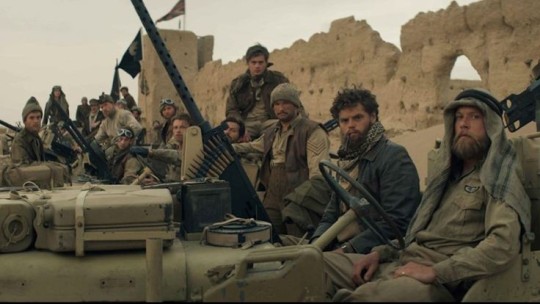
Soldiers will not only just need equipment to survive on the field. Soldiers will carry all sorts of weapons on them. It was up to the soldier to care for the weapon and ensure it is up to scratch. Ammunition, of course, doesn’t grow on trees and nor do weapons. Weapons and ammunition like supply I mentioned above could often be “liberated” from the enemy or even unwitting allies. Every soldier will carry:
A rifle: This is the long-range weapon carried by almost all soldiers. They will use this in combat, especially if fighting from a fixed position.
A handgun or a pistol: Most soldiers will carry a secondary gun. These guns are useful in tight spaces or close combat.
Bayonet: A knife or blade that is attached to the rifle. This allows a soldier to stab the enemy with their rifle.
Combat Knife: A knife used in combat.
Mortar: This is a short-barrelled artillery piece. It is used to fire shells at steep angles.
Hand Grenades: These are handheld explosives carried by soldiers. They have a delayed fuse, meaning that they are useful as both a long-range weapon and as a close-range weapon – one could leave one behind as a present. They are typically activated by pulling the pin, flinging it away from the body, toward the enemy and denoted.
Uniforms
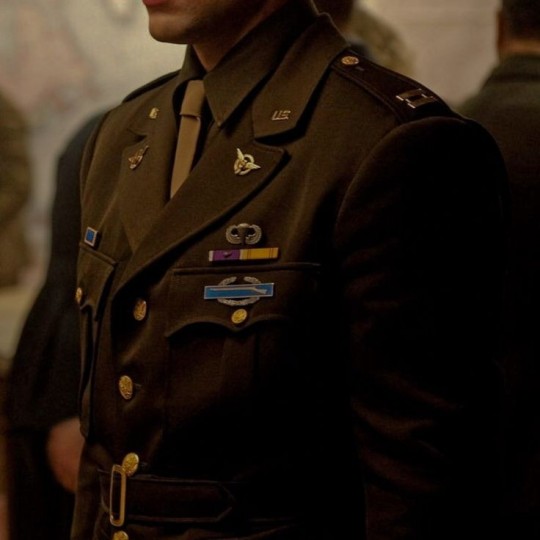
Above in rankings, we went through the insignia which is the symbols on one's uniform that denotes your rank and place in the hierarchy of things. Soldiers will be inspected every day to ensure their uniforms are up to standard and will face the wrath of superiors if their uniforms are unkempt and their appearance not up to the mark. Every private learns how to shine their own boots, sort out their own uniforms and are responsible for looking their best. There are different kinds of uniform for a soldier.
Casual Uniform: This uniform is comprised of a more casual uniform, made up of a tunic/shirt, trousers and boots. Certain units will wear caps and berets denoting their unit and rank as well. Combat Uniform: This is worn on the field. It will often reflect the climate the soldier is going into, so will be light and heavy depending on the weather. A soldier would wear a combat jacket, trousers, wear a helmet, wear their identification tags/dog tags. These would be in mute colours, usually khaki or camouflage. Service Dress Uniform: This is worn during official duties and formal events. It comprises of a dress shirt, tie, peaked cap/beret, creased trousers and a jacket with their insignia, unit symbols and medals. Dress Uniform: This is worn during very formal ceremonies. A formal jacket pinned with ribbons, embroidered insignia and the medals of their achievements and commendations, creased trousers, dress shirt and tie, polished shoes and a formal hat cap/beret.
Life of a soldier (On Base and in the Field)

Soldiers on active duty will be expected to manage many tasks, not just firing at the enemy or storming enemy beaches. Soldiers are expected to fulfil maintenance work, defence, offence, administrative duties (if needed), engineering and communications.
On Base: A soldier’s day will be planned right down to the second. They will get up at a certain time, have an allotted time to get ready and tidy up their bunk, report to various drills and participate and have a list of duties to undertake within the day. These duties involve maintenance on base, helping with any office work, guarding and patrolling, doing specialised tasks such as helping in the infirmary. Most privates will do the grunt work, anything hands on or labour intensive while officers will see to training soldiers or paperwork or supply management.
In the Field: The life of a soldier in the field wasn’t as regimented as on base – it can’t be, since most soldiers won’t have the exact same day especially in battle or marching from place to place. But every soldier will have certain duties to undertake. Of course, fighting will be included, some soldiers would take it in shifts to man a fixed position or to engage the enemy or to participate in missions into new or enemy territory. Soldiers would take their place “out on the line”, patrolling the edges of their camp to ensure they can’t be crept up on. Soldiers will erect camp every night they aren’t marching which includes the putting up of tents, digging of latrine pits, building fortifications. Soldiers not out on the line or engaging the enemy will spend their time at camp either helping in the mess hall, in the infirmary or keeping the camp ship-shape. Soldiers may often be sent out to “forage” (*cough, cough* steal) whatever they need such as food.
The Realities of the Army
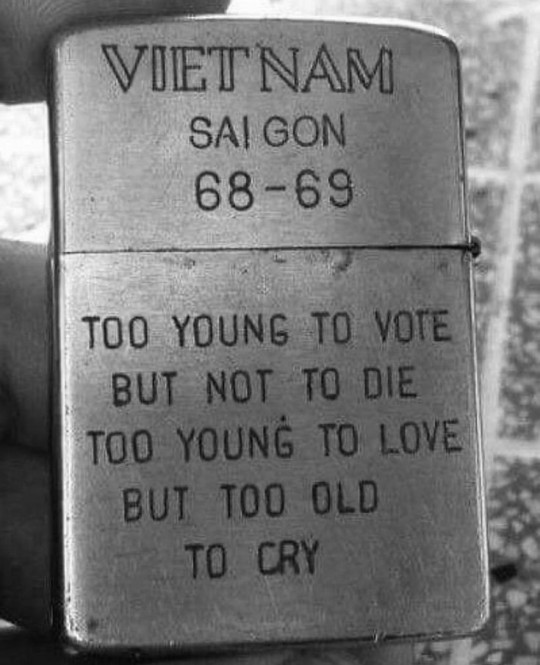
Good vs Evil. Yes, sometimes the army are the heroes. But in reality, war is a grey area. No army in the world is wholly bad or innocent. Every single army on earth has committed war crimes and every army has had to make decisions which some would find morally reprehensible. The point is that painting an army as the good guys or the bad guys in your narrative can’t work because it isn’t realistic. You can of course highlight these issues by the actions of a few soldiers while still retaining the antagonists and the heroes. You can of course pit the ideals of both sides in a war together, to firmly push your reader toward the good guys vs the bad guys. But the reality is a simple one: all armies kill, all armies steal and all armies destroy.
Civilian vs Soldier: The Reality Civilians suffer at the hands of their own army as well as the enemy. Civilians often had to deal with soldiers taking their crops, livestock and overtaking their homes in searches for food, shelter and resources. Enemy civilians would also put up with pillaging, looting and in some cases death, assault and sexual abuse. It is of course against protocol to harm civilians but things do happen in theatres of war.
The Army vs the Soldier
While the army expects a lot out of the soldier as an induvial, the army can often fall short of their duties to that soldier. This can be unintentional, for example supplies can get lost or stolen. But there are instances where soldiers and their needs are sacrificed for the greater good. They maybe passed over for supplies or reinforcements for another unit. They may be placed in difficult circumstances without any hope of relief. They may not have the equipment needed to fight their battle or stay alive. Sometimes, armies even shot their own soldiers for insubordination, ex. In WW1, many soldiers on all sides were shot by their own for “cowardice” – this may have been the case, but some cases involved soldiers who were suffering from PTSD.
Choice vs Obligation vs Threat Why do soldiers fight? What makes somebody join the army? Sometimes it is the search of opportunity, of a place, of rank and a purpose. But sometimes, going to war isn’t the choice of the soldier. Drafts and conscription make military service compulsory for certain age groups and genders. In peacetime, soldiers are enlisted voluntarily in most armies while some countries have compulsory service time even in times of peace. In some wars, criminals in prison were offered the chance to serve in the war as penance for their crimes. There are of course instances when one is threatened or forced into an armed force.
The Effects of War on the Soldier War changes people. The things soldiers see and have to do within war and training will inevitably change them as people. Sometimes, the change is positive, the army has been named by many people as the thing that straightened them out and have them structure. The army sometimes allows soldiers to travel and gain access to opportunities and education that they may never have had access to before. But undeniably, war has negatives effects on soldiers and civilians. Soldiers may suffer from PTSD, depression, suicidal thoughts and feel a disconnect between themselves and their old lives. Soldiers often find it hard to return to their life after the war, especially in radically different settings with people who don’t understand what they have been through. This can lead to substance abuse issues, alcoholism, problems with the law and troubles within relationships among family and romantic partners. Soldiers of course can get injuries while in war or even in training. Loss of limbs, damage to the brain and other organs, broken bones, burns, shrapnel injuries and of course gunshot wounds are all common. Soldiers often get ill while in the field, such illnesses including typhoid, hypothermia, trench foot, dysentery, malaria, pneumonia etc. These are caused by the close living quarters and the often-sub-standard living conditions. Soldiers would often be at risk for pests such as lice and fleas because of their living conditions. Soldiers may often face problems with nutrition, might suffer from dehydration and starvation especially if supplies are scarce.
The Geneva Convention
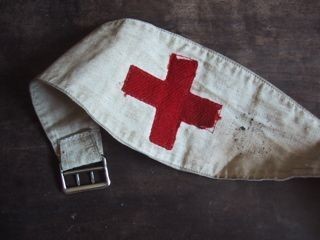
Your world may not include the Geneva Convention, may pre-date the Geneva Convention or Geneva may not be a place within your WIP, but I include this here so you might have a fair idea about the “rules” of modern warfare. This is just a brief version.
Medical personnel are not to be specifically targeted in operations.
Medical facilities and equipment is not be targeted in operations
Any wounded soldiers or civilians are to be treated, despite allegiance.
Prisoners cannot be tortured or harmed in any way
Prisoners must be fed, well-kept and treated for any injury
Prisoners are not under obligation to tell their captors anything but their name, rank and other personal information – this is so they can be recorded and all information must be recorded and sent to the captured soldier's officers
Prisoners must be allowed to communicate with family and friends.
Prisoners have the right to receive any packages or mail.
Prisoners have the right to access the services of the Red Cross, who cannot be prevented from visiting and inspecting them
Prisoners who are seriously wounded or ill must be released
Any religious figures are to be captured and released as soon as possible
Soldiers cannot take hostages, they cannot pillage, they cannot take slaves.
Soldiers must abstain from humiliating and degrading any captured soldiers or civilians.
Reprisals against civilians and other soldiers are forbidden.
Group punishment is not permitted (Yes, that one teacher did break the Geneva Convention)
Prisoners can be tried by their captors, but they are entitled to a fair trial.
All POWs shall be released at the end of conflict
At sea, hospital ships cannot engage in war.
Any shipwrecked crew on a ship must be rescued despite allegiance.
Children, pregnant women, mothers with very young children, the elderly, the sick and wounded who are imprisoned for a long time, must be released as soon as possible.
Surrendering soldiers, civilians and civilians who participate in acts against an army cannot be harmed and must be taken alive.
The use of weapons to cause suffering, say a non-fatal wound or mutilation is prohibited.
It outlaws indiscriminate attacks on civilian populations and destruction of food, water and other materials needed for survival.
The destruction of resources that could affect the population such as poisoning the water supply is not permitted.
Certain infrastructure cannot be destroyed or targeted. This includes dams and nuclear stations. Cultural landmarks and religious landmarks are also to be spared.
Recruitment of children into the armed forces is prohibited.
The use of certain symbols such as the Red Cross in order to deceive the enemy is prohibited.
Civilians who do not take part in combat are to be treated respectfully. They are protected from violence from soldiers.
Children and vulnerable people are top-priority to be evacuated to safe havens as soon as possible. All efforts will be made to reunite them with family.
The targeting of civilians and anything that sustains their well-being such as food sources is prohibited.
Military Terminology

This is by no means a full list but these are the most commonly used terms.
Boots on the ground – to physically be in a location
Inspection - a superior officer takes formal note of appearance, condition of living area and weapons.
Drill – a practise in various manoeuvres, marches, procedures
Pass - leave to have some free time, sometimes off base.
Off base - away from military barracks
Tour of duty – the period of time which an action is completed in.
Civvies – Civilian clothing
Detail - a specific task undertaken by a unit or soldier
Mess hall - dining facility
Latrine - toilet
Latrine duty - digging a Latrine pit or cleaning the facility
Flanking - Attacking an enemy formation from the sides
Envelopment - surrounding the enemy from multiple sides
Penetration - breaking past the enemy’s front lines
Reconnaissance by Fire - Firing at positions that may be occupied by the enemy to provoke them into returning fire (so you know where they are)
Ambush - Attacking from concealed position
Retreat - go back the way you came (DO NOT COLLECT €200)
Feigned Retreat - Pretending to retreat and then attacking the enemy
Perimeter - boundary of fortified area
No Man's Land - the space between front lines
Contact line - where opposing sides meet to fight
Supply line - the route the supplies get from base to the field.
Front line - the furthest out troops are place on the line, this is where the most intense fighting happens
Barracks - sleeping quarters in base
Foxhole - a dug position in the ground
Combatant: A person actively engaged in fighting.
Non-combatant: A person not engaged in a conflict.
Civilian: Somebody who is not a member of any military unit.
Militia: Civilians who are armed and trained to fight.
Guerrilla: Small, independent units that takes up arms against an armed force. Very effective.
Saboteur: Somebody who deliberately sabotages equipment and supplies.
Spy: Somebody who gathers information about the enemy.
Operative: A soldier who carries out a specific task.
Mercenary: A soldier for hire
Contractor: A person or a group of people who are hired to provide advice, services and additional support to the army and their operations.
Conscription: Compulsory enlistment.
Enlistment: Joining the army.
Exercise: Simulated military practises or manoeuvres for training.
War game: Simulated war fare for training.
Mission: The operation.
Objective/Target: The objective of the mission.
Campaign: Multiple operations.
Down Range – being within the combat zone
In-Country – being within in a war zone
Quarters – can mean one of two things either it is a medic's order to stay in the camp or barracks or military family housing.
Squared away - to fix
Siege: Where one army sits outside a fortified town or position and tries to claim it.
Convoy: A large group of vehicles such as trucks, jeeps and tanks travel together. It is harder to target more than one vehicle.
Escort: More vehicles and soldiers who accompany a convoy.
Strike/Assault: Attacking the enemy.
Counterattack: An attack to respond to a previous attack
Rear: Behind the formation
Front: Before the formation.
Line: The formation.
Column: The formation in a line.
Formation: The arrangement of soldiers
Deployment: Soldiers moving to a position.
Redeployment: Sending soldiers to another position.
Mobilization: Readying soldiers, their supplies and equipment for deployment.
Demobilization: The disbanding of soldiers after an operation.
Reserve: Soldiers and equipment held back. This is usually to conserve soldiers and supplies for emergencies or shortages.
Reinforcement: More soldiers and equipment sent to the soldiers on the line to bulster their efforts.
Casualty: Death, injury, missing.
KIA: Killed in action.
MIA: Missing in action.
Surrender: Yielding to the enemy.
Ceasefire: An agreement to cease hostilities.
Armistice: A temporary stay of fighting.
Battalion: A large unit of soldiers. Usually in the range of 300 upwards to 800 or so soldiers.
Regiment: A unit made up of several battalions.
Division: A military unit (10,000-20,000)
Corps: A unit, (20,000-50,000)
Theatre: The place where military operations are undertaken.
Engagement: A battle or a conflict with the enemy.
Manoeuvre: Planned movement.
Logistics: The planning of moving soldiers and equipment to soldiers.
Ordnance: Supplies.
Artillery: Large-calibre firearms.
Infantry: Soldiers who fight on foot.
Reconnaissance: Gaining information about the enemy and their positions.
Tactical: Planning and implementation the military strategies.
Strategic: Planning and directing strategies.
Operational: The following through of military operations.
Command/Control: The authority to direct military operations.
Communications: The passing of information between units, base and HQ.
HQ: Head Quarters
Intelligence: Information about the enemy
Counterintelligence: Preventing the enemy from gaining information about the army, such as the famous Operation Mincemeat.
Camouflage: The use of material or paint to hide oneself from one’s enemy.
Fortification: Defensive structure
Entrenchment: Digging trenches or foxholes.
Garrison: Military station.
Bivouac: A temporary camp, but this camp is without no cover. This means no tents or shelter.
Dog Tags - Metal identification tags worn by soldiers
Patrol: Soldiers will leave camp or their positions to walk within their boundaries
Raid: Attacking on the enemy’s position.
Zero Dark Thirty - Early as fuck, from 0100 hrs to sunrise.
Copy - I understand
Unit - can mean any organisation in the military
Platoon - a section within a company made up of 30-50 soldiers
Contact - Engaging with the enemy
Tactically Acquired - Stolen
Squad - a smaller faction of a company
CO - Commanding officer
XO - second in command
Hang Fire - wait for the next set of orders
Demilitarized Zone - a place that is no go for military equipment, weapons and soldiers
AWOL - Absent without leave
PT - Physical Training
Skivvies - ones undergarments
Active Duty - Full time duty in active service
As You Were - Go back doing whatever you were doing or standing how you were standing
BOLO - Be on the Lookout
CP - checkpoint
Bunk - Bed
Ruck - backpack
Smoked - physical punishment for an infraction.
Zone of Action - a specific part of the tactical area.
About face - a manoeuvre where a someone or a group turn to face the opposite direction.
POW - Prisoner of War
POW Camp - facility to house POWs
Halt - stop marching/moving
Present Arms - salute, typically by presenting one's weapon or raising the right hand to the forehead
Parade Rest - stand with one's feet shoulder-width apart, hands folded behind their back
Fall out - break formation
Fall in - get into formation
At ease - stand in a more relaxed position
Attention - stand upright, heels together, back straight, shoulders back, arms at the sides.
Books and Media I recommend
Band of Brothers (HBO, Limited Series)
Beyond Band of Brothers by Dick Winters
Band of Brothers by Stephen Ambrose
M*A*S*H
The Unwomanly Face of War by Svetlana Alexievich
Lady Death: The Memoirs of Stalin's Sniper by Lyudmila Pavlichenko
The Six Triple Eight
Some Desperate Glory: The First World War the Poets Knew by Max Egremont
Poems of the Great War 1914-18
Poems of the Great War by Wilfred Owen
Poems of the Great War by Siegfried Sassoon
Poems of the Great War by Robert Graves
Poems of the Great War by Rupert Brooke
Poems of the Great War by David Jones
SAS Rogue Heroes (BBC)
SAS: Rogue Heroes: The Authorised Wartime History by Ben MacIntyre
Saving Private Ryan
All Quiet on the Western Front by Erich Maria Remarque
All Quiet on the Western Front
Private Peaceful by Michael Mupurgo
War Horse by Michael Mupurgo
Road to War by Valerie Wilding
The Trenches by Jim Elderidge
D-Day by Byran Perett
D-Day by Ben MacIntyre
Japan's Pacific War by Peter Williams
Operation Mincemeat by Ben MacIntyre
War Nurse by Sue Reid
Helmet for my Pillow by Robert Leckie
With the Old Breed by Eugene B Sledge
Hacksaw Ridge
D-Day Through German Eyes: How the Wehrmacht Lost France by Jonathan Trigg
Platoon
Britain’s Secret Defences: Civilian saboteurs, spies and assassins during the Second World War by Andrew Chatterton
If You're Reading This...: Last Letters from the Front Line by Sian Price
A Bridge Too Far
Firepower in Limited War by Robert Scales
Storm of Steel by Ernst Jünger
Dunkirk
The Things They Cannot Say: Stories Soldiers Won't Tell You About What They've Seen, Done or Failed to Do in War by Kevin Sites
1917
On Artillery by Bruce Gudmundsson
Letters From Iwo Jima
Das Boot
The Longest Day
Come and See
War Horse
#Yes this is long#I am not sorry you asked for this post and I delivered#I shall rest now#and yes I am aware there are some gaps in my military knowledge but I did my best#writing#writeblr#writing resources#writing reference#ask answered#writer#writing advice#spilled words#writer's problems#writer's life#Fantasy guide#fantasy guide to the army#the army#writer's guide#writer's help#writing resource#writer reference#writer resource#writing hep#writing guide#writers#creative writing#wtwcommunity
549 notes
·
View notes
Note
Do you have a favourite c-drama, either historical, modern or fantasy? I really enjoyed watching Everlasting Longing
I absolutely have a favourite, along with 3 other that come really close 😃 These 4 shows I've watched for almost 30 years now and I still keep re-watching them because of how amazing they are.
a) 1994 Romance of the Three Kingdoms (三国演义) b) 1986 Journey to the West (西游记) c) 1987 Dream of the Red Chamber (红楼梦) d) 1998 Water Margins (水浒传)
These 4 series were based off of the classical novels of the same names. They were produced by CCTV, the central broadcasting network in China, so we call them 央视版 (central broadcast version) because there are many other adaptations.

Romance of the Three Kingdoms, out of these 4 series this one is my ABSOLUTE favourite. Not only for Chinese drama, this is my favourite show historical, modern, Chinese, English, the top spot in my heart.
This story is set in the Three Kingdoms period of Chinese history. Out of all 4 classics, this one is the most historical, but the story DOES contain many fictional aspects. Many people say it's 70/30 (70% based on history, 30% made up/tweaked from history). The characters themselves ARE all real in history, and the general direction of the story follows history as well.
Near the end of the Han Dynasty, local warlords started gaining power, eventually splitting the country into 3 Kingdoms. That's pretty much the basis of the story. It goes into strategies used in warfare, psychology of using strategies, famous battles, etc. People also use it to discuss some philosophical questions like, honor, right vs wrong (kill an innocent person to calm an entire army, is that justified? etc.), what is acceptable as a leader, being faithful to your country, not giving up, etc.
I've watched this series no less than 20 times over the past 30 years and every time I still laugh and cry. I also know enough about the background when they were filming to know how difficult it was. The series is 84 eps long, they filmed in 5 groups for 3 years (so basically all 5 groups were filming at the same time to save time), even utilizing the military for some of the larger battles. Main character roles were paid 250 yuan/episode (about $34 USD today), which was fairly good for salary back then but nowhere near the outrageous amounts actors get today compared to average worker. The first few months before filming all actors went through training, horseback riding, fighting, going over the novel with experts, learning etiquette and mannerisms, etc.
This series also has my favourite historical figures, Emperor Liubei and his Prime Minister Zhuge Liang. After researching the actual history of this period, these two are my top historical Emperor/advisor pair. An Emperor who trusted his Prime Minister with his Kingdom, and a Prime Minister who fought to the last breath to fulfill the dream they had together T___T 为什么我的鱼水君臣要 BE...😭😭😭
If you're interested in watching this series, @hanchaozhilang is doing English subs for the whole series
Putting up 2 MVs for them here (combined into 1 video), 我家昭烈帝和武侯有排面!!
Srcs: 一知半解书 【悬溺一响,诸葛亮登场】 https://www.bilibili.com/video/BV1nP411W7tA/
博文儿吖 【刘备|正史燃向】翻译翻译什么叫昭烈! https://www.bilibili.com/video/BV14r4y1m7rs/

Journey to the West is based off of a true event in history, during the Tang Dynasty. A monk went on a journey from Chang'an (now Xi'an) to India for Buddhist scriptures. I'm not too familiar with the actual history, but I can imagine back then it would've been an incredibly difficult journey to make.
The novel took that journey and expanded it. They wrote in 3 disciples for the monk (technically 4...the horse who's the son of one of the Dragon Kings is also one), and put 81 "tests" along the way. The monk and his disciples had to overcome these attempts to thwart their journey to finally reach their goal.
The main character of this series isn't actually the monk but his eldest disciple, the Monkey King (top right). The Monkey King (named Sun Wukong) was birthed from a rock, and learned skills like how to transform into various objects, how to fly, etc. At one point he trashed the Jade Emperor (Emperor of the Heavens) palace and was sentenced by Buddha to be trapped under a mountain, but was tasked to assist the monk on his journey 500 years later.
When they filmed this series they were desperately short on funding, only had 1 video camera to use xD Every single main actor took on several roles (some of the smaller monster roles, once all the makeup was on you couldn't tell anyway). The actor who played the Monkey King, Liu Xiao Ling Tong, he came from a family of Peking Opera performers who specialized in the Monkey King role, so he excelled in it.

The novel Dream of the Red Chamber is originally called Story of the Stone (石头记). It centres around several large, rich, powerful families interconnected through marriage, with members serving in the court and one of the daughters even being a concubine to the Emperor. Although the story doesn't specify a dynasty, most people speculate it's likely set in Ming (the author was from the Qing Dynasty).
There are numerous storylines throughout the story, but the main one is between a young man, Baoyu, and his cousin, Daiyu (top left). This novel is incredibly complicated, with an entire profession dedicated to studying just this book (called "Redology" 红学). It can be viewed as telling the rise and fall of a family, but can also be viewed to describe a society and the rise and fall of dynasties. There are many, many characters in this book all with different story arcs. When I was a child, watching this show was just pretty clothes and hair, but as I grew, every time I re-watched the show I found reflections of life in this story. Family relationships, friendships, colleagues, bosses, this story touches on all of them, so whatever age you read this book/watch this show there's things to think about.
Many of the actors for this show were not actors by profession, literally plucked from the crowd. For two years prior to filming, all of them lived together, learning the script, reading the novel, going over it with experts, learning mannerisms, how to write calligraphy, poetry, etc. Their roles weren't immediately set, so during those two years they all tried out different roles, memorized lines, basically like living in a giant dormitory together, so once filming did start their "acting" was very natural.

Water Margins is set in the Song Dynasty. This story, to me, is darker than the other 3. The story depicts a court that is very corrupt and unjust, which forces a lot of otherwise good people to resort to criminal activity. Over 100 of them gather on a mountain in the middle of a lake, called Liangshan, where they essentially become a gang.
The traditional view of them tended to be kind of like Robinhood, raiding local cities and distributing the wealth to the people but if you actually read the book it's darker. Before joining the group, some of them would kidnap women and **** them, or one person had a restaurant where she murdered customers and made them into meat buns O.O;; So...yeah, dark stuff.
But anyway, the story goes into how this group take on the courts, lots of fighting, lots of bloodshed, the ending's really tragic T_T
#中国#china#chinese history#c-dramas#dream of the red chamber#journey to the west#romance of the three kingdoms#water margins#电视剧#古装电视剧#三国演义#西游记#红楼梦#水浒传#央视#央三#86西游#87红楼#98水浒#怀念老剧#前几天看到丞相在B站拜年开心哈哈
127 notes
·
View notes
Text

The Best Army Training Center in Vizag#trending#viral
Manasa Defence Academy stands out as India's best army training centre, providing top-tier training programs designed to prepare students for a successful military career. Located in a prime area, the academy offers state-of-the-art facilities, experienced instructors, and a rigorous curriculum that covers all aspects of army training. Whether you're aspiring to join the Indian Army or looking to enhance your military skills, Manasa Defence Academy is the ideal choice. We’ll take you through the academy's comprehensive training modules, student success stories, and the unique features that make it the top army training centre in India. Stay tuned to find out why Manasa Defence Academy is the best option for your army training needs.
Call: 7799799221
Website:www.manasadefenceacademy.com
#BestArmyTrainingIndia #ManasaDefenceAcademy #ArmyTrainingCentreIndia #TopDefenceAcademy #MilitaryTrainingIndia #ArmyCareer #BestArmyAcademy #IndianArmyTraining #DefenceAcademyReview #StudentSuccessArmy#trending#viral
#best army training centre#army training in India#Manasa Defence Academy#top defence academy India#military training India#best army academy#Indian army training#army training programs#top army training centre#best defence training India#army preparation#military training school#army career preparation#Indian defence training#army student success#Manasa academy review#top army academy#Indian military academy#army training modules#army student stories#army training facilities#army training centre review#army training curriculum#best military school#defence academy India#army career India#Indian defence academy#best military training centre#top army institute#Indian army preparation
0 notes
Text

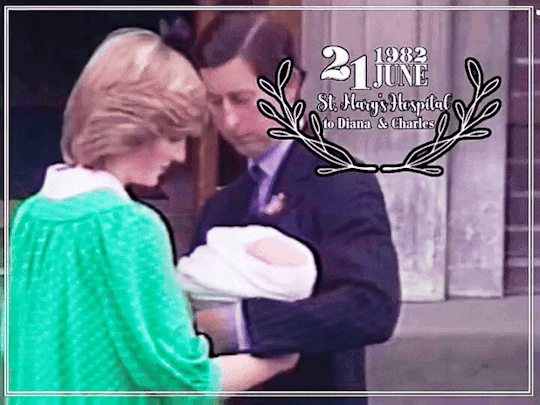







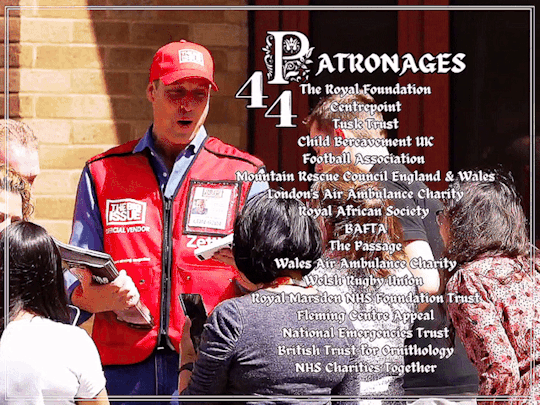
HAPPY 42ND BIRTHDAY TO HRH THE PRINCE OF WALES, WILLIAM ARTHUR PHILIP LOUIS ♡
On 21 June 1982, Prince William was born to Diana and Charles, then known as Prince and Princess of Wales in St Mary's Hospital, London, at at 21:03 BST. He was born during the reign of his paternal grandmother Elizabeth II and was the first child born to a Prince and Princess of Wales since Prince John's birth in July 1905.
The little prince's name was announced on 28 June as William Arthur Philip Louis. Wills was christened in the Music Room of Buckingham Palace by the then Archbishop of Canterbury, Robert Runcie, on 4 August.
William studied at Jane Mynors' nursery school and Wetherby School in London before joining Ludgrove. He was subsequently admitted to Eton College, studying geography, biology, and history at the A-level.
The Prince undertook a gap year taking part in British Army training exercises in Belize, working on English dairy farms, and as part of the Raleigh International programme in southern Chile, William worked for ten weeks on local construction projects and taught English.
In 2001, William enrolled at the University of St Andrews, initially to study Art History but then changed his field of study to Geography with the support of the love of his life Catherine Elizabeth Middleton who he met while at school.
Will and Cat fell in love during their time at uni, and married at Westminster Abbey on 29 April 2011. The couple have three adorable cupcakes Prince George (b.2013), Princess Charlotte (b.2015) and Prince Louis (b.2018). The family of five divide time between their official residence, Kensington Palace and their two private residences - Amner Hall & Adelaide Cottage.
After university, William trained at the Royal Military Academy Sandhurst. In 2008, he graduated from the Royal Air Force College Cranwell and joined the RAF Search and Rescue Force in early 2009. He transferred to RAF Valley, Anglesey, to receive training on the Sea King search and rescue helicopter, which made him the first member of the British royal family since Henry VII to live in Wales.
During his active career as a Search and Rescue Pilot, William conducted 156 search and rescue operations, which resulted in 149 people being rescued. He then served as a full-time pilot with the East Anglian Air Ambulance starting in July 2015, donating his full salary to the EAAA charity.
Working with all branches of the military, he holds the ranks of Lieutenant Colonel in the Army, Commander in the Navy and Wing Commander in the Air-Force
Upon their wedding, WillCat became HRH The Duke and Duchess of Cambridge, The Earl and Countess of Strathearn and Baron and Lady Carrickfergus. He became the heir apparent on 8 September 2022, receiving the titles of the Duke of Cornwall & The Duke of Rothesay. William & Catherine were made The Prince and Princess of Wales by Kimg Charles on 9 September 2022. Additionally, William also became the Prince & High Steward of Scotland, Earl of Chester, Earl of Carrick, Lord of the Isles, and Baron Renfrew.
As well as undertaking royal duties in support of The King, both in the UK and overseas, The Prince devotes his time supporting a number of charitable causes and organisations with some of his key areas of interest being Mental health, Conservation, Homelessness, Sports and Emergency Workers.
He has undertaken several overseas trips representing the monarch, covering a wide array of countries like Australia, Canada, Namibia, Malaysia, South Africa, Tanzania, Pakistan Italy, Jordan, Kuwait, France, India, The Bahamas, Belize, Afghanistan etc ; He is also is also a founder of various initiatives like United For Wildlife, Heads Together, Earthshot and Homewards.
#happy birthday william ❤️#william's 42nd birthday#prince of wales#the prince of wales#prince william#william wales.#william prince of wales#british royal family#british royals#royals#royalty#brf#royal#british royalty#catherine middleton#kate middleton#duchess of cambridge#2024 wales birthdays#prince george#princess charlotte#prince louis#royaltyedit#royalty gifs#royalty edit#royaltygifs#my gifs#21062024
170 notes
·
View notes
Text
Swedish Saab signs MoU with India HAL for Laser Warning System
By A Correspondent Bengaluru (Karnataka): Swedish defence major Saab AB has signed a Memorandum of Understanding (MoU) with Hindustan Aeronautics Limited (HAL) to collaborate on the electronic warfare Laser WarningSystem-310 (LWS-310). This agreement builds on a strong partnership between Saab in South Africa and HAL that began in 2005 during the development of the Advanced Light Helicopter…
#Advanced Light Helicopter#AeroIndia#ALH#Armed Forces#DAP#Defence#Defence Acquisition Procedure#Defence Procurement Procedure#Defense#Dhruv#DPP#HAL#Hindustan Aeronautics#Hindustan Aeronautics Limited#India#Indigenisation#Infrastructure#Laser Warning System#Localisation#LWS-310#Maintenance#Mats Palmberg#Memorandum of Understanding#Military#MoU#SAAB AB#South Africa#Technology#ToT#Training
0 notes
Photo
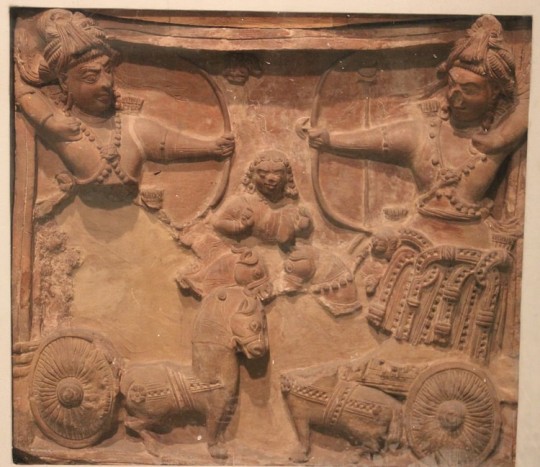
Ancient Indian Warfare
War was the chief means by which territory was annexed or rulers defeated in ancient India, which was divided into multiple kingdoms, republics and empires. Often one empire predominated or different empires co-existed. The Vedic literature (1500 – 1000 BCE), the two epics Ramayana and the Mahabharata (1000 - 600 BCE), Kautilya's Arthashastra (c. 4th century BCE) and Banabhatta's Harshacharita (c. 7th century CE), all key texts regarding warfare in ancient India, testify to this. Troops were recruited, trained and equipped by the state (maula). There were many communities and forest tribes (atavika) that were known for their military skills and prized as such. Such people lived by the profession of arms (ayudhjivi). Villages providing soldiers were called ayudhiya. Mercenaries (bhrita) also existed in large numbers as did corporate guilds of soldiers (shreni) and they were recruited whenever required.
Attitudes to Warfare
The king or emperor was supposed to be a great warrior, capable of vanquishing enemies on the battlefield and subduing their kingdoms. The idea of digvijaya (Sanskrit: “victorious campaign in all directions”) so that a ruler could become a chakravarti samrat (Sanskrit: “emperor whose chariot wheel rolls unobstructed”) was always emphasized. Religiously, the Hindus favoured war as a means of furthering royal ambition and even advocated the concept of dharma yuddha or “just war” to avenge injustices or claim one's justified right to the throne. Buddhism and Jainism, despite their advocacy of non-violence, also understood the role of war and warfare in the prevailing political system and especially for the defence of one's kingdom against invaders embarked on a digvijaya. The Buddha himself advised the minister of Magadha's king Ajatashatru (492 - 460 BCE) on how difficult it would be to conquer Vaishali. Alongside all his humanitarian work, the Mauryan emperor Ashoka (272-232 BCE) also did not disband his army but continued to maintain efficient means for the security of his people, which he considered as part of his duty as a Buddhist ruler looking after the welfare of his subjects. Throughout the ancient period, many of the most notable emperors, kings, warriors and even individual soldiers continued to be devout Jains.
Continue reading...
34 notes
·
View notes
Text
Physical Fitness and Military Training: The Core of Maharashtra's Defense Academies

Joining a military school in Maharashtra can be an exciting and transformative experience for young students. However, it’s not uncommon for students to experience homesickness, especially during holidays and initial days away from home. Coping with homesickness is an essential aspect of personal growth and adaptation. In this blog, we will explore effective strategies to help military school students deal with homesickness and make the most of their educational journey at Trimurti Pawan Pratishthan.
What does being Homesick mean?
Being homesick refers to the feeling of longing or sadness experienced when a person is away from their familiar and comfortable home environment. It is a common emotional response that individuals may experience when they are in an unfamiliar place, such as being away at school, traveling, or living in a different city or country. Homesickness is characterized by a strong desire to return home and be with family or loved ones, and it can be accompanied by feelings of loneliness, nostalgia, and a sense of disconnection.
Homesickness is a natural human emotion, particularly when going through significant life changes or being separated from familiar routines and support systems. It is important to recognize that homesickness is a temporary feeling and can be overcome with time and adaptation to new surroundings. For many people, homesickness gradually subsides as they become more familiar with their new environment and develop meaningful connections with others. Coping strategies such as staying connected with loved ones, engaging in activities, seeking support, and focusing on the positive aspects of the new situation can help individuals manage homesickness effectively and embrace their new experiences.
Effective Strategies that Aid Military School Students in Coping with Homesickness
1. Stay Connected
Maintaining regular communication with family and friends can ease feelings of homesickness. Encourage students to use technology to call, video chat, or message loved ones during designated times. Additionally, organizing care packages or exchanging heartfelt letters can provide emotional support and a sense of connection.
2. Engage in Activities
Participating in various school activities and extracurriculars can divert the mind from homesickness and foster a sense of belonging. At Trimurti Pawan Pratishthan, we offer a range of engaging activities, from sports and arts to leadership programs, encouraging students to explore their interests and talents.
3. Seek Support from Friends and Mentors
Encouraging camaraderie among peers is vital at a military school. Students can lean on each other for support and understanding, as they share similar experiences. Our experienced mentors and faculty at Trimurti Pawan Pratishthan also provide a nurturing environment for students, offering guidance and companionship.
4. Embrace the Learning Experience
Help students reframe their mindset about homesickness. Remind them that it is normal to miss home, but they are also embarking on a journey of growth and self-discovery. Encourage them to focus on the learning experience, the opportunities to develop life skills, and the chance to become future leaders.
5. Create a Familiar Space
In dormitories or living quarters, allow students to personalize their space with familiar items from home. Familiar bedding, photos, or cherished belongings can provide comfort and a sense of familiarity in an unfamiliar environment.
Our Efforts to Solve Homesickness at Trimurti Pawan Pratishthan
At Trimurti Pawan Pratishthan, we understand that homesickness is a natural part of the transition to military school life. Our dedicated faculty and mentors work closely with students to create a supportive and nurturing environment. Through engaging activities, camaraderie, and personalised guidance, we empower students to overcome homesickness and embrace the unique learning experience.
Join Trimurti Pawan Pratishthan and empower your child to thrive academically, emotionally, and socially in a secure and caring environment. Enrol now to shape their future as leaders of tomorrow!
https://trimurtieducation.com/
#best military school in india#military academy in maharashtra#military boarding school in maharashtra#military training school in maharashtra
0 notes
Note
What people miss with regards to the Jordan Neely/Daniel Penny story is that Penny didn’t choke him out because he’s a bad person. He did it because of socioeconomic factors which made him desperate. The alternative to him being found not guilty would be him going to prison, and that wouldn’t have been justice. Penny needs to be treated with grace and care in this undoubtably troubling time for him
I think my scambaiting post must be going around because I'm getting some asks about it. I'm mostly just deleting them if they're not interesting or instructive, but I think this one actually might be.
My OP made a gesture at a materialist analysis which should be performed. This material analysis would have to do with the flow of money, labour, and resources as it actually exists in the world: the extraction, extortion, and theft of raw materials; the purposeful, violent destabilisation of entire regions by the military arms of the USA, Canada, Europe &c. to force people to work for pennies, so that labour will be incredibly cheap compared to what it would cost if performed by most citizens in the imperial 'core'; and other measures that are taken to ensure that value flows from colonised nations to colonising nations. (These measures also include the devaluing of institutions in the 'periphery' such that advanced degrees from certain countries are simply worth less than others; and the restricted ability of those in the 'periphery' to travel or migrate across borders with the freedom afforded to those with imperial citizenship.)
So certain people are in a situation where structures and enforcers of power have made them poor and desperate on purpose so that they can be 'superexploited' at a level beyond that experienced by most people in the imperial 'core'. This is the purpose of imperialism, and it's the purpose of the concept of 'race.' People work in factories for very little money, because the imperial periphery is supposedly only good for the production of raw materials (fabric; t-shirt blanks; assembly of parts of electronics &c.); the design, the artisanship, the packaging, the 'refining,' the making of the chocolate bar from the cocoa, everything that confers 'value' to the item, is done in the imperial core, and that increased 'value' / sale price is added to the GDP of the country in which the product is completed.
In fact this 'raw material' is not 'raw' at all, and it also invovles design and artisanship—but the people of the 'third world' cannot 'design' anything and they cannot be 'artisans'—nothing they make can be labelled as 'handmade' or 'hand-sewn' even if it is literally made with their hands—because they are not considered as people in that way.
But that's the product realm. In terms of the internet (even setting aside the physical materials, space, energy, water &c. required to maintain the internet):
Things (such as Amazon's failed "Just Walk Out" thing) are advertised as "artificial intelligence" despite the fact that thousands of people in India are forced to do work that is tedious, time-consuming, and often horrific and traumatising (consider content moderation!!) in order to make them work. Their material conditions—which are created and maintained, in the most violent manner imaginable, on purpose in order to force them to do this work—render many people desperate enough to take these jobs.
If there are people, who are reachable online, who at a baseline are making a hundred times what you are making, whose currency has incredible purchasing power where you live, and you can get some of that money—if you can work for yourself this way, obviously you're going to do that. This happens because there's money to be made in it. If people can set up an operation and train hundreds of people in how to do this, and take most of the profits and still provide a salary that's attractive to people because of how high the margins are, then obviously that's going to happen. This is just, the concept of capitalism. If there is a way to make money doing something, someone is going to be doing that thing.
Material analysis is looking at the world as it actually exists, in order to figure out how materials, labour, and value are 'flowing' on local and global scales, as a means of determining why things happen the way they do. Like, on a base level, that's what it means to analyse something—to try to figure out why it happens the way it does.
This anon, in sending this ask, didn't understand what any of this meant, or didn't want to consider it, or something. They were unable or unwilling to consider a different lens than that of personal desert, personal merit, and innate personal badness / criminality. The concept of trying to understand where money is, how it moves and why, as a base level of knowledge necessary to understand why there is money to be made in doing certain things, doesn't compute to them—so they have to move things back into the realm of personal desert, and act like I'm saying that people who commit acts of interpersonal violence "deserve" to be allowed to commit that violence as long as they're going through something, whether or not the thing they're going through created the necessary circumstances for, or has any other direct relation with, the act of violence being committed (basically "some people commit violence to cope").
All of that is kind of typical—it's very normal for people to act like asking them to consider people in the 'third world' as actual human beings with human things like "circumstances" and "motivations" and "thoughts" that influence their actions is tantamount to spitting in their grandmother's face.
But what's most interesting to me about this ask is how, in order to dismiss the idea of material analysis as necessary to understand why things happen and to reassert an interpretive framework of individual criminality, anon uses the idea of interpersonal racial violence as something that we can all agree is caused by innate criminality and not by material factors. As if by comparing scamming to this act of violence, it emphasises the innate criminal personality at the root of both acts. As if, obviously, we can all agree that people who commit this kind of violence are just evil demons who "deserve" to be locked up—so saying "the material fact of present-day colonialism creates the conditions for this kind of scamming" is tantamount to saying "we shouldn't lock criminals up in prison." If the latter statement is unthinkable, then so, by comparison, is the former.
Except that this concept of "the criminal" as being a specific "type" of person who uniquely does and deserves evil, and who needs to be locked up in a cage for the good of the rest of society, is exactly what I am, in fact, intending to question. I think the anon would be surprised to learn about the vast body of work (I mean texts, but also direct activism) conducted under the heading of "prison abolition."
31 notes
·
View notes
Text
List of russian lies in the UN or during diplomatic speeches:
1. In January-February of 2022 russia claimed in the UN that they will not invade Ukraine, that they have no plans to invade Ukraine, and evidence of upcoming invasion are lies made by the US or others.
End of the same month russia launched a full-scale invasion.
2. Russia claimed in the UN that the reason they attacked Ukraine was to fight some "local nazis" and that they are indeed good guys fighting Ukrainian hatred. That, however, does not explain why: a) russia opposed the grain deal until Turkey threatened to make it work one way or the other, showing their intention to starve hundreds of millions of people in neutral countries for no reason whatsoever, b) russia refused to allow UN or Red Cross etc to observe the conditions of POWs or to open humanitarian corridors for people to escape from Mariupol or other conflict zones, with thousands of witnesses reporting abductions, filtration camps, and shelling of retreating civilians, c) russia claimed to only want to protect local russian population, yet completely destroyed whole cities in majorly-russian-speaking Eastern Ukraine, like Mariupol (satellites showing mass graves), and bombing mainly civilian targets - schools, hospitals, theatres, a shopping mall during peak hours, a train station where people waited for evacuation, apartment buildings, etc. Currently we can see that there is no effort on the russian-controlled side of Dnipro river to help people in flooded areas, with videos and citizen testimonies reporting shelling of all disaster aid attempts, d) russia claimed that they only hate the "nazi" Ukrainian government, yet they openly shelled Ukrainian power grids during winter, for no other reason than to leave innocent civilians with no gas or electricity.
3. Russian state TV, public figures like Solovyov, former President and Prime Minister as well as head of security council of russia Medvedev openly stated either on national TV or in their social media pages that they want to "exterminate" Ukrainians. That the whole country should not exist, that Ukrainian language is fake, etc etc. This is genocidal speech and it is not limited to Ukraine either. The Baltic States, Poland, etc also received such claims - that they "do not exist" that they "belong to russia" or that they "should be invaded". Makes it very obvious who the imperialistic, colonist aggressor actually is. Medvedev also repeatedly threatened Western European countries with missile or even nuclear attack, yet they claim to only be "defending themselves".
4. Lavrov got laughed at during a summit in India for claiming that "russia was invaded by Ukraine". Do I even need to explain why this is a lie? If I do, check 1st point again. Or just turn on your brain.
5. Then there's more sci-fi nutjobby official russian claims (or lies) about - bioweapons in Ukraine, pidgeons carrying disease or weapons to russia, Ukraine having some super-soldiers, or even dark magic, as indicated by russian Ministry of Defense changing the goal of their "special military operation" from "denazification" to "desatanization".
And that's just a few of the main ones. More is discussed in the latest UN meeting, you can watch the video on their official website.
So, knowing all of this, why the fuck would you believe ANYTHING they say? Especially about the destruction of dam?
Russia has repeatedly shown aggressive attitude towards neighbouring countries, claimed their wish to occupy them, russian officials called for extermination of whole nationalities, and both President putin and Belova have enough evidence against them for ICC to issue a warrant for them for GENOCIDE AND WAR CRIMES.
If you still believe in russia, despite anything they themselves say, you're either a genocide-supporter or unbelievably stupid.
380 notes
·
View notes